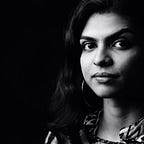(Do) The Things We Observe Tell Us Something About Ourselves
These days I find myself spending a lot of time sitting in the balcony and staring out at the world. I’ve grown quite fond of these moments of just watching. Seeing how plants have grown, or how birds as tiny as leaves flit around the canopies of trees. One day I even surprised myself by finding a pigeon in flight rather beautiful. On some days I see monkeys jumping from branches to balconies, and often I watch people walking slow rounds around the apartment for their exercise.
The people, and sometimes the monkeys, notice me noticing them. And this reminds me of the famous philosophical pondering: ‘If a tree falls in a forest and no one is around to hear it fall, does it make a sound?’
Across centuries, scientists and philosophers have debated how to define sound and how to define existence in order to answer this question. But I think the question that is actually interesting here is not just whether a sound existed but the meaning of that sound existing. And by that I’m not talking about a philosophical or metaphorical meaning, but the rather straightforward recognition that if a body as large as a tree changes its position in space and meets the ground with some force, it causes something that we perceive as sound. And this leads me to another question — what does it mean to observe?
I think that our senses make us aware of two things — of relationship and of change — and our sensory faculties would be quite redundant without them, like if we were in a vacuum. I understand an observed event as one which leaves a trace in the physical universe; one which has an effect (change) on something other than itself (relationship). So by observing we are both witnessing relationships and partaking in them. Could it be that that sound of the tree falling allows us to meet the tree and the ground at the same place they meet each other?
We are only aware of what we engage with — what we observe, relate to, and experience. When I look around my house I realise I don’t know where most of the things I use come from, how they are made, or who or what made them. From the clothes I wear to the furniture I use to the utensils I cook with… I even don’t know what the plants of a few of the vegetables that I eat look like. Sometimes I order groceries that are delivered to me so then I don’t even pick my fruits and vegetables from shopping aisles, let alone from the plants they grow on. And for most of us this is what modern city life is like. We seek results without the relationships that make them and the reality we know is the one we are given to consume. If we only deal with products, the only relationships we recognise are the ones that have to do with our tastes, our preferences, our desires. And we think that knowing these things tells us something about ourselves and gives us some identity. But I don’t think who we are is about what we like or dislike. I think who we are is more about how we respond and deal with events that we cannot decide on our own. That it’s about how we share life, or reality, or whatever you want to call it.
So, for me, when we wonder, ‘If a tree falls in a forest and no one is around to hear it fall, does it make a sound?’ the question I’m more keen on asking is what happens when no one is around to hear or see or witness it fall? Because isn’t this what’s already happening? Everyday there are thousands of trees that are felled in forests and who is around to see them or hear them or think about their falling? And I’m not talking only about trees. What happens to us when we don’t observe what happens to others? What would we notice if we did?
